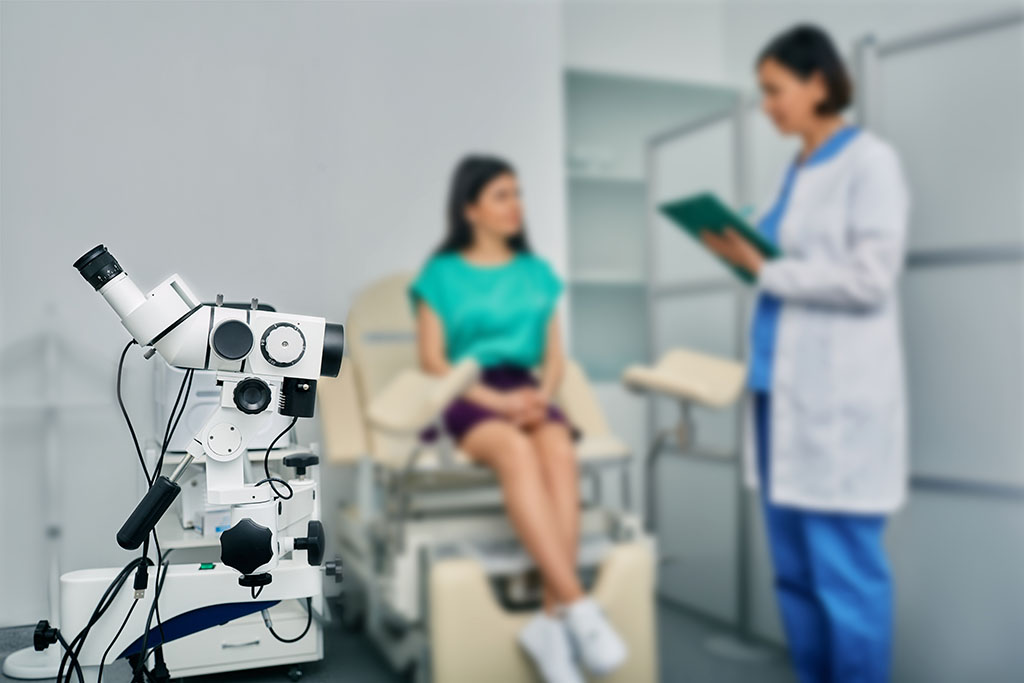When Would You Need a LEEP Procedure vs. Colposcop
You want to take a proactive approach to your health. You know the statistics on cervical cancer, and that’s why you have regular Pap smears.
But what if that Pap smear shows abnormal results? What do you do next? You may have heard about medical procedures and tests such as a LEEP procedure vs. a colposcopy. But what do these mean, and will you need to have one?
At Associates in Women’s Healthcare, we understand that getting news of an abnormal Pap smear is frightening. Your mind immediately jumps to the worst case scenario. While an abnormal result always needs a followup exam, it doesn’t necessarily mean you have cervical cancer. That’s why we work closely with you, providing information and answers when you need them most. If you’re past due for your Pap smear, we encourage you to protect yourself and contact us today to schedule an appointment.
Let’s examine the differences between a LEEP procedure vs. a colposcopy, including when you would need each one.
Differences Between a LEEP Procedure vs. Colposcopy
The main difference to remember is that LEEP is an actual procedure, while a colposcopy is a diagnostic exam that aids us in creating a treatment plan.
So, When Would You Need a LEEP Procedure vs. Colposcopy?
If you have had an abnormal Pap smear, cervical polyps or genital warts, you’ll need a colposcopy because this exam provides the information we need in order to make an accurate and timely diagnosis. From there, we can evaluate your options.
If you have abnormal or precancerous cells on your cervix, you may need a LEEP procedure, which enables us to remove those cells. We go into greater detail of the LEEP procedure, including how it’s done.
What Is Colposcopy and When Would I Need One?
A colposcopy is a diagnostic exam where one of our OBGYNs in Raleigh looks at your cervix and vaginal walls using a colposcope. This instrument utilizes a lighted magnifying glass to
get a better view. During the exam, a speculum is gently inserted into your vagina, similar to how you have a Pap smear. This enables us to get a clearer view of your cervix and vaginal walls.
We go into greater detail on the colposcopy exam in our earlier blog, “What Is a Colposcopy and What Does It Test For?”
What Conditions Mean I Need to Have a Colposcopy?
If you’ve had an abnormal Pap smear, you’ll likely need a colposcopy. But there are other instances as well, such as:
- Irregular or excessive bleeding
- Polyps
- Genital warts
- Diethylstilbestrol (DES) exposure. DES is a medication that some mothers take during pregnancy. If your mother took DES, then you may have an elevated risk of reproductive system cancer.
How Long Will My Colposcopy Exam Take?
The exam itself takes around 15 minutes.
What Is A LEEP Procedure and Why Would I Need One?
By contrast, when considering a LEEP procedure vs. colposcopy, a LEEP is an actual procedure, as we mentioned earlier. The LEEP will help us treat any issues with your vagina or cervix that have been discovered through regular exams or Pap smears.
LEEP stands for loop electrosurgical excision procedure. It uses a small, wire loop that is heated by electricity. The loop removes questionable cells, and is an effective part of early cancer diagnosis and treatment.
While it may sound scary to have a heated wire loop inserted into your vagina, remember, we numb your cervix to minimize any discomfort. If you do experience pain or are uneasy, please mention it to us. We are partners in your care and it’s important to us that you are heard and that your experience is as pleasant as possible.
How Long Will My LEEP Procedure Take?
The procedure itself is less than 25 minutes.
Associates in Women’s Healthcare: Ready to Serve You on Your Journey to Wellness
Whether You Need a colposcopy or a LEEP procedure, at Associates in Women’s Healthcare, our team of board-certified OBGYNs in Raleigh want to be partners in your care. We don’t only care about your gynecological health; we care about your overall health as well. We want you to live your healthiest life. It’s vital to evaluate issues like blood sugar, cholesterol, and weight before these can lead to more serious problems down the road.
We’d consider it a privilege to be your medical home. Contact us for an appointment today.
This article and the articles on this website are for educational purposes only and are not intended to be medical advice. If you have questions or concerns, contact your medical provider.





